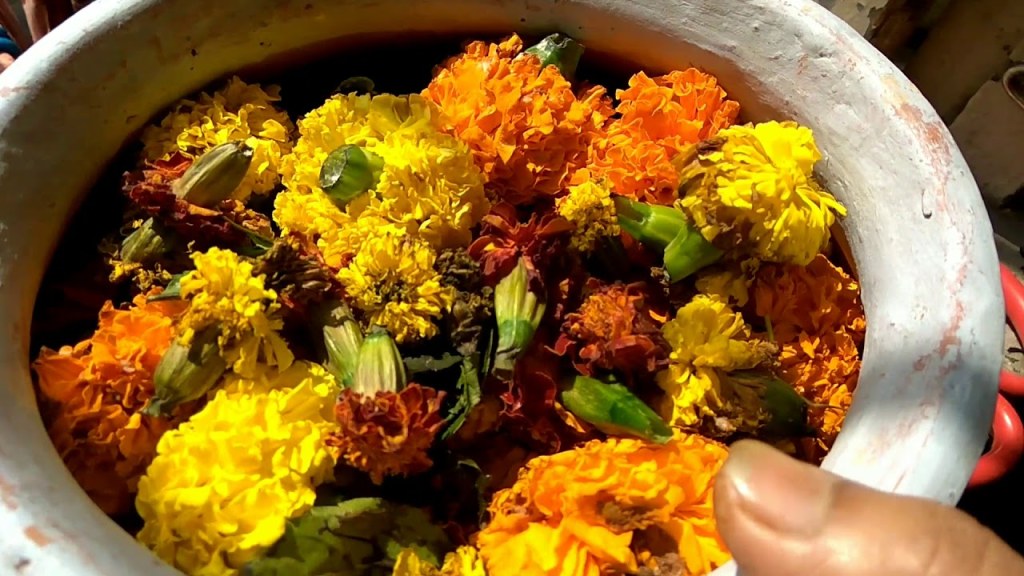Unlock The Secret: Can Flowers Be Composted? Discover The Power Of Flower Composting Now!
Can Flowers Be Composted?
Greetings, Flower enthusiasts! In this article, we will explore the fascinating topic of composting flowers. Flowers are not only beautiful and fragrant, but they can also be a valuable addition to your compost pile. Composting flowers not only helps in waste reduction, but it also provides nutrient-rich soil for your garden. So, let’s delve into the world of composting and discover the benefits and methods of composting flowers.
Introduction
Composting is the process of decomposing organic matter to create nutrient-rich soil. It is a sustainable practice that aids in waste management and promotes healthier soil and plant growth. Flowers, like other organic materials, can be composted to contribute to this natural cycle.
1 Picture Gallery: Unlock The Secret: Can Flowers Be Composted? Discover The Power Of Flower Composting Now!

What: Composting flowers involves breaking them down into organic matter, which will decompose over time and transform into nutrient-rich compost.
Who: Flower enthusiasts, gardeners, and eco-conscious individuals who want to reduce waste and enhance soil fertility can benefit from composting flowers.

Image Source: ytimg.com
When: Flowers can be composted throughout the year, but it is best to compost them when they are no longer fresh or when they have wilted.
Where: Flowers can be composted in outdoor compost bins, compost piles, or worm composting systems. It is essential to choose a well-ventilated area that receives adequate sunlight.
Why: Composting flowers offers several benefits. It helps reduce landfill waste, enriches the soil with essential nutrients, improves soil structure, retains moisture, and promotes healthy plant growth.
How: Composting flowers involves a few simple steps. First, remove any non-organic materials such as ribbons or plastic stems. Then, chop the flowers into smaller pieces to speed up the decomposition process. Add the flowers to your compost pile, alternating with other organic materials such as kitchen scraps and dry leaves. Turn the compost pile regularly to aerate it and promote decomposition. Within a few months, you will have nutrient-rich compost ready to nourish your plants.
Advantages and Disadvantages
Advantages:
Waste Reduction: Composting flowers helps divert organic waste from landfills, reducing environmental impact.
Nutrient-Rich Soil: The resulting compost from flowers enriches the soil with essential nutrients, promoting healthier plant growth.
Improved Soil Structure: Compost improves soil structure by enhancing its ability to retain moisture and nutrients.
Cost-effective: Composting flowers eliminates the need for chemical fertilizers, saving money in the long run.
Environmentally Friendly: By composting flowers, you contribute to a more sustainable and eco-friendly gardening practice.
Disadvantages:
Time-consuming: Composting flowers requires time and patience as it can take several months for the organic matter to decompose fully.
Odor: If not properly managed, composting flowers can produce an unpleasant odor. Regular turning and proper aeration help prevent this issue.
Pest Attraction: Flowers in compost can attract pests such as flies or rodents. To mitigate this, cover the compost pile and avoid adding meat or dairy products.
Frequently Asked Questions (FAQs)
1. Can I compost flowers that have been sprayed with pesticides?
A: It is not recommended to compost flowers that have been treated with pesticides. These chemicals can harm beneficial insects and affect the quality of the compost. Opt for organic flowers or remove any pesticide residues before composting.
2. Can I compost flowers with seeds?
A: Yes, you can compost flowers with seeds. However, avoid composting flowers with invasive seeds that may spread and become a nuisance in your garden.
3. How long does it take for flowers to compost?
A: The time it takes for flowers to compost varies depending on factors such as temperature, moisture, and the size of the flower pieces. Generally, it can take several months for flowers to decompose fully.
4. Can I compost dried flowers?
A: Yes, dried flowers can be composted. However, they may take longer to decompose compared to fresh flowers.
5. Can I compost flowers with thorns?
A: Thorns can take longer to decompose, but they can be composted. Consider removing large thorns or prickly parts before adding them to the compost pile.
Conclusion
In conclusion, composting flowers is a fantastic way to reduce waste, improve soil fertility, and promote sustainable gardening practices. By following the proper steps and techniques, you can transform your wilted flowers into nutrient-rich compost that will nourish your garden. So, start composting those flowers and reap the benefits of a healthier and more vibrant garden!
Final Remarks
Composting flowers is not only beneficial for your garden but also for the environment. Remember to avoid using chemicals on your flowers, as they can hinder the composting process. Additionally, always be mindful of the materials you include in your compost pile to prevent unwanted pests and odors. Happy composting, and may your garden bloom with vitality!
This post topic: Flower


